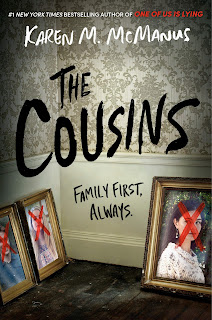The role of death and mourning in John Gay's The Beggar's Opera play a key role in drawing out the characters and contrasting them to highlight their social qualities. I will examine death as interpreted by three characters, who play on known stereotypes of the time: Peachum notes a business transaction, Mrs. Trapes a mode of fashion, and Polly/Lucy loses her love.

Peachum's very name alludes to his business nature. His first scene finds him with the book of accounts, puzzling over the thieves that bring him money and how they should not be hanged. Even as he chooses, he notes the business-like quality of keeping women alive: "There is nothing to be got by the death of women-except our wives!" (Act 1, Scene 2) In this case death transforms into a business transaction, a payment or punishment. MacHeath's death is also viewed as a form of gaining money, as in Polly's dowry "The comfortable estate of widowhood is the only hope that keeps up a wife's spirits." (Act 1, Scene 9) For the audience, Peachum's selfishness and apathy towards death would accentuate his role as thief, a stereotype that could be found in criminal biographies of the time.
While a secondary character, it important to note Mrs. Trapes' light attitude towards mourning in terms of clothing. She approaches Peachum with a request: "If you have blacks of any kind, brought in of late, mantoes-velvet scarfs, petticoats-let it be what it will, I am your chap. For all my ladies are very found of mourning." (Act 3, Scene 6) Mrs. Trapes' prostitutes are donning black not to hide away from society, but to draw attention to their wares. In this sense death is used as a vehicle to gain business but also as fashionable wear to adhere to society's expectations. Mrs. Trapes would represent the vain aspect of death, as all in the audience would interpret the need for mourning clothing.
Finally, perhaps the only character not to view death as an eventuality is Polly. She begs her father to "sink the material evidence, and bring him off at his trial," (Act 3 Scene 11) because she knows it would mean MacHeath's death. She avoids a "noisy crew" of prisoners who were pardoned from their trials, because "the mirth seems an insult upon my affliction." (Act 3, Scene 12) Furthermore, Polly's role is to bring a sympathetic sigh from the audience; she doesn't bear the callous business-like attitude of her father or the frivolous fashion of death as Mrs. Trapes. Polly's fear of death results from her deep love, an absence to be found in nearly every single character. It is ironic considering her upbringing that she expects MacHeath to live long. In this way death is used to highlight her difference from the other characters in the play.
Perhaps it is the combination of these three attitudes that contributed to the success of The Beggar's Opera. While the play is considered a "comedy of manners," the subtle themes of death and mourning were necessary to playing the serious against the humorous. The most telling conclusion to this theory is brought forth when MacHeath's death is prevented by "you rabble there" (Act 3, Scene 16). Death is personified distinctly by each character, yet it is the role of the audience that actually effects its timing. As an audience, this gives them power over the stage, and makes death less of a finality and more of a character who is businesslike, vain, and feared.
Works Cited
Gay, John. The Beggar's Opera. England: 2000. Print.


Great post, Kristen. As you said, death gives quite different meanings to each character. Like birth, death should be a natural event in a person's life. But, as you pointed out, it's personified by each characters and even controlled by rabbles at the end of the play.In particular, Peachum's use of death by getting profit is much more immoral than other characters' attitudes to death. Overall, the play is comical and humorous but I think Gay, by using death which is not a joyful theme at all, reveals vicious world of London in 1720s.
ReplyDeleteReally interesting post Kristen. I hadn't thought much about the role of death in the play before reading this. I think it is interesting that death becomes more of a romanticizing tool at times too. As Mrs. Peachum thinks of Bob Booty going to the scaffold, she sings about how he becomes an Adonis with the idea of his imminent death. Steve Newman in "The Value of 'Nothing'" discusses this aestheticization of death and its symbolic power.
ReplyDelete